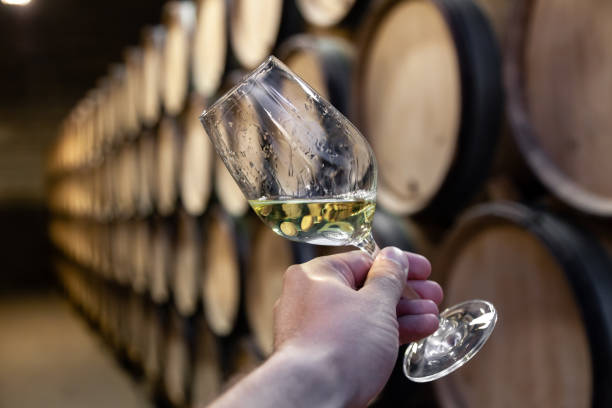Chardonnay is a popular type of white wine that is enjoyed by many people all over the world. It is known for its smooth, crisp and refreshing taste, as well as its versatility when it comes to pairing with different types of food. Chardonnay is made from the Chardonnay grape, which is one of the most widely planted grape varieties in the world. However, for those who are counting their carbs, one question that often comes to mind is how many carbs are in a glass of Chardonnay?
The amount of carbs in a glass of Chardonnay can vary depending on several factors, such as the type of Chardonnay, the winemaking process, and the alcohol content. Generally speaking, a 5-ounce serving of Chardonnay contains approximately 3 grams of carbohydrates. This means that one glass of Chardonnay contains around 6% of the recommended daily intake of carbohydrates.
It is important to keep in mind that while the amount of carbs in a glass of Chardonnay is relatively low, it can still add up if you are consuming multiple glasses in one sitting. Additionally, the carbs in wine come primarily from alcohol and residual sugar, which can be harmful for those who are trying to watch their sugar intake.
In terms of the winemaking process, Chardonnays can be fermented in a variety of ways, including stainless steel, oak, and concrete. The type of fermentation and the length of time the wine is aged can impact the amount of residual sugar in the wine. Chardonnays that are aged in oak barrels tend to have a higher amount of residual sugar, which can result in a sweeter taste and a higher carb content. On the other hand, Chardonnays that are aged in stainless steel tend to have a lower residual sugar content and a crisp, clean taste.
Another factor to consider is the alcohol content of the wine. The alcohol content in Chardonnay can range from 12% to 14% ABV (alcohol by volume), with higher alcohol content wines having a higher carb content. This is because alcohol is a form of carbohydrates and the more alcohol a wine has, the more carbs it will contain.
Wine, in general, is not a significant source of carbohydrates as it is primarily composed of water and alcohol. However, some wines, particularly those with higher residual sugar levels, can have a slightly higher carb content.
It is important to keep in mind that while a glass of Chardonnay may not be high in carbohydrates, it still contains a significant amount of alcohol, which can impact blood sugar levels. Additionally, wine should be consumed in moderation as part of a balanced diet, and individuals with specific dietary restrictions should consult with a healthcare professional before incorporating wine into their meal plans.
In conclusion, the amount of carbs in a glass of Chardonnay can vary depending on several factors, including the type of Chardonnay, the winemaking process, and the alcohol content. On average, a 5-ounce serving of Chardonnay contains approximately 3 grams of carbohydrates. While this is a relatively low amount of carbs, it is important to keep in mind that consuming multiple glasses of wine in one sitting can quickly add up. Additionally, the carbs in wine come primarily from alcohol and residual sugar, which can be harmful for those who are trying to watch their sugar intake.

 Home
Home Health
Health Diet & Nutrition
Diet & Nutrition Living Well
Living Well More
More












